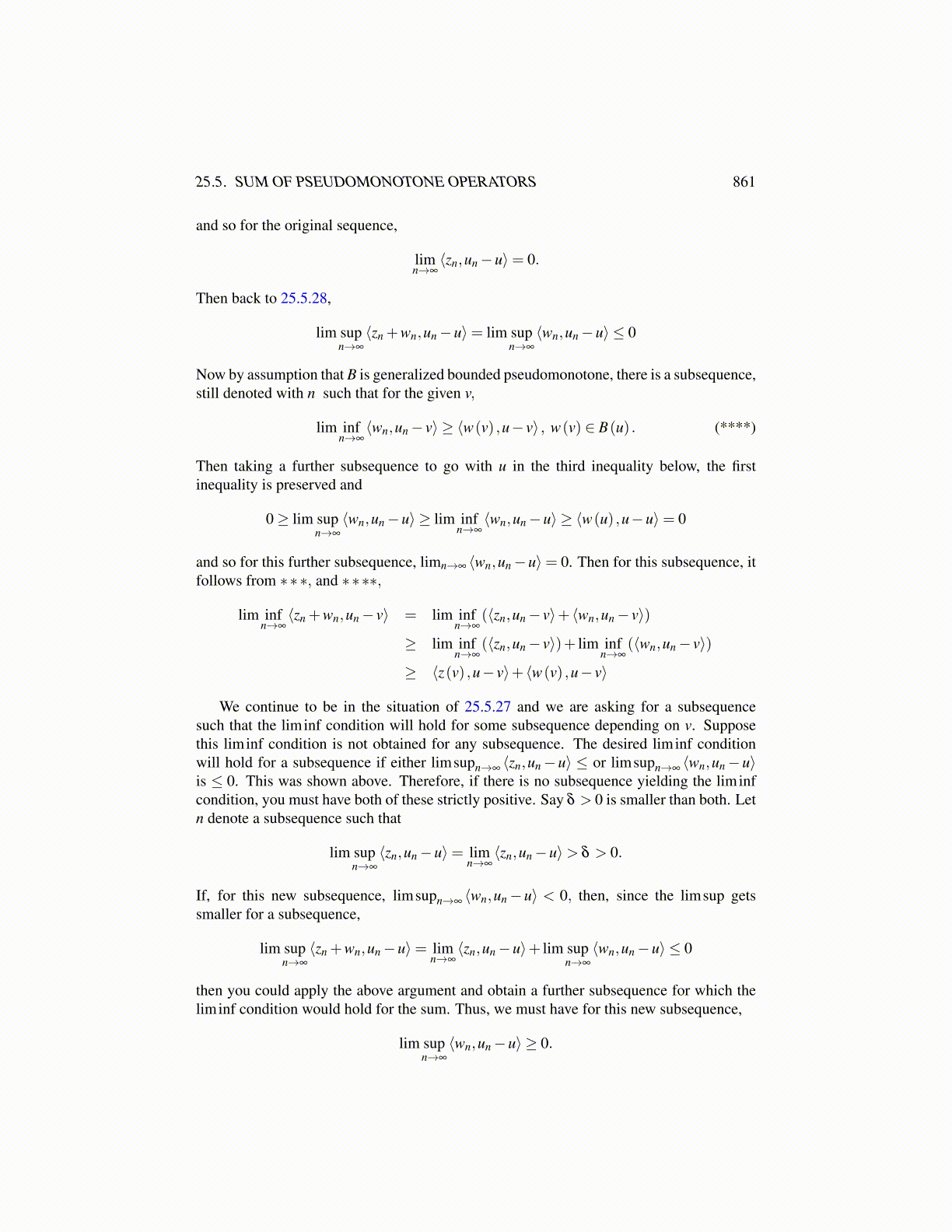
25.5. SUM OF PSEUDOMONOTONE OPERATORS 861
and so for the original sequence,
limn→∞⟨zn,un−u⟩= 0.
Then back to 25.5.28,
lim supn→∞
⟨zn +wn,un−u⟩= lim supn→∞
⟨wn,un−u⟩ ≤ 0
Now by assumption that B is generalized bounded pseudomonotone, there is a subsequence,still denoted with n such that for the given v,
lim infn→∞⟨wn,un− v⟩ ≥ ⟨w(v) ,u− v⟩ , w(v) ∈ B(u) . (****)
Then taking a further subsequence to go with u in the third inequality below, the firstinequality is preserved and
0≥ lim supn→∞
⟨wn,un−u⟩ ≥ lim infn→∞⟨wn,un−u⟩ ≥ ⟨w(u) ,u−u⟩= 0
and so for this further subsequence, limn→∞ ⟨wn,un−u⟩= 0. Then for this subsequence, itfollows from ∗∗∗, and ∗∗∗∗,
lim infn→∞⟨zn +wn,un− v⟩ = lim inf
n→∞(⟨zn,un− v⟩+ ⟨wn,un− v⟩)
≥ lim infn→∞
(⟨zn,un− v⟩)+ lim infn→∞
(⟨wn,un− v⟩)
≥ ⟨z(v) ,u− v⟩+ ⟨w(v) ,u− v⟩
We continue to be in the situation of 25.5.27 and we are asking for a subsequencesuch that the liminf condition will hold for some subsequence depending on v. Supposethis liminf condition is not obtained for any subsequence. The desired liminf conditionwill hold for a subsequence if either limsupn→∞ ⟨zn,un−u⟩ ≤ or limsupn→∞ ⟨wn,un−u⟩is ≤ 0. This was shown above. Therefore, if there is no subsequence yielding the liminfcondition, you must have both of these strictly positive. Say δ > 0 is smaller than both. Letn denote a subsequence such that
lim supn→∞
⟨zn,un−u⟩= limn→∞⟨zn,un−u⟩> δ > 0.
If, for this new subsequence, limsupn→∞ ⟨wn,un−u⟩ < 0, then, since the limsup getssmaller for a subsequence,
lim supn→∞
⟨zn +wn,un−u⟩= limn→∞⟨zn,un−u⟩+ lim sup
n→∞
⟨wn,un−u⟩ ≤ 0
then you could apply the above argument and obtain a further subsequence for which theliminf condition would hold for the sum. Thus, we must have for this new subsequence,
lim supn→∞
⟨wn,un−u⟩ ≥ 0.